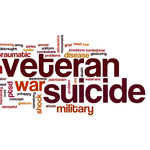It’s a good sign. Major media outlets like premium cable (e.g. HBO or Showtime) and Netflix have been dedicating their resources and addressing suicide. Just recently, Netflix released a series called 13 Reasons Why, about a teenage girl whose temporary problems made her life no longer worth living. The web streaming service also released an original movie, The Discovery, which focused on where we go after we die, a realization that leads to a spate of suicides across the world.
While such content are works of fiction, the messages ring true. More importantly, they encourage us all to question the case of suicide. The reasons behind it, the various ways that it might be prevented. It is important that people, who may be susceptible to suicidal ideations, are made aware that suicide in most cases is a permanent solution to a temporary problem. As much as it may feel like you can’t go on, feelings are not facts—there is always a solution to be had.
One demographic that is no stranger to suicide, or thinking about it, is people who have or are struggling with alcohol or substance use disorder. Especially among those whose substance abuse is a direct result of attempting to self-medicate another form of mental illness, such as depression or post-traumatic stress disorder (PTSD).
Suicide In The Military
One does not have to experience trauma in order to develop a substance use disorder, but such people are at a greater risk. Whether or not someone is struggling with addiction or a co-occurring disorder (substance abuse combined with another mental health disorder), people in the military take their own lives at a far greater rate than the general public.
It turns out that out of more than 4 million veterans, drug and alcohol abuse affects 8 percent of males and 3 percent of females, HealthDay reports. Such individuals were two-times at risk of suicide, compared to veterans without an alcohol or substance use—20 veterans die by suicide every day in the United States. The findings were published in the journal Addiction.
“We hope these findings will help clinicians and health systems care for people with substance use disorders, with mental health conditions, and with both — and focus suicide prevention efforts accordingly,” said lead study author Kipling Bohnert, an assistant professor of psychiatry at the University of Michigan Medical School, and also a researcher with the VA Center for Clinical Management Research.
Female veterans with substance use problems were found to commit suicide at more than five times the rate of female veterans who did not abuse drugs or alcohol, according to the article. The researchers found that females who abused opioids and males who abused amphetamines were at the greatest risk of suicide.
Suicide Prevention by Way of Treatment
Active substance abuse takes people to the darkest of places. With each day that passes one sees more and more doors closing. If you add other forms of mental health disorders into the equation, the picture becomes even more dismal. Despair can lead to a rash decision that can’t be reversed.
The first step to addressing why you feel the way you do, is to identify what you are doing that might be a contributing factor. If daily drug and alcohol use is occurring, it is definitely contributing to your feelings of despair. It is quite common for people abusing drugs and alcohol to also have a co-occurring mental health disorder, as we mentioned previously otherwise known as a “dual diagnosis.” While depression, anxiety, PTSD and bipolar disorder certainly complicate the treatment of addiction, recovery is still possible.
Please contact Celebrate Hope at Hope by The Sea. We specialize in treating co-occurring mental health disorders. We can help you break the cycle of addiction and begin the process of treating your dual diagnosis, so that you can lead a life in recovery free from drugs and alcohol.

